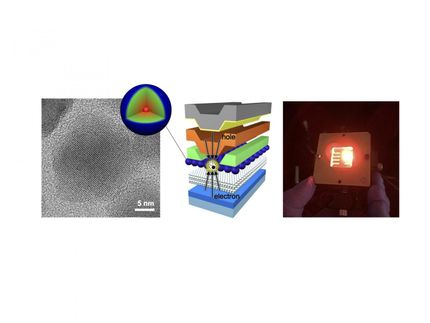Nanosys Licenses Broad Portfolio of Fundamental Nanotechnology Intellectual Property from MIT
Advertisement
Nanosys Incorporated announced today the licensing of 40 key patents and patent applications in nanotechnology developed at the Massachusetts Institute of Technology in the Laboratory of Professor Moungi Bawendi. The patents cover critical elements of zero dimensional nanomaterials, so-called quantum dots or nanocrystals, including fundamental new compositions of matter such as core-shell nanocrystals, unique processing and manufacturing strategies, breakthrough devices such as nanocrystal lasers and LEDs and applications such as spectral encoding.
"Dr. Bawendi is unquestionably one of the world's leaders in nanomaterials development and applications; and his patent portfolio reflects that," said Nanosys Director of Business Development, Stephen Empedocles. "This technology represents some of the most fundamental and important breakthroughs in nanotechnology that have occurred in this field over the last 10 years."
Combined with their already industry dominant technology portfolio, Nanosys plans to leverage the remarkable properties of Dr. Bawendi's nanomaterials in developing and producing commercial technologies in a broad range of industries. "The Bawendi patents are a perfect complement our intellectual property portfolio in the nanotechnology arena. Near term applications enabled by this technology include displays, lasers, solar cells and many other electronic and optoelectronic devices." Earlier this year Nanosys announced similar licensing agreements with nanotechnology hubs at Harvard University, multiple different campuses managed by the Regents of the University of California and Lawrence Berkeley Laboratories.
"The fundamentally unique optical and electronic properties of quantum dot materials let us create devices that cannot be made using traditional optoelectronic materials", said nanotechnology pioneer and Nanosys co-founder, Professor Bawendi. "By combining this with our ability to precisely synthesize and control the physical properties of the materials on the nanometer size-scale, we have the potential to dramatically impact many different industries."
Most read news
Other news from the department research and development

Get the chemical industry in your inbox
By submitting this form you agree that LUMITOS AG will send you the newsletter(s) selected above by email. Your data will not be passed on to third parties. Your data will be stored and processed in accordance with our data protection regulations. LUMITOS may contact you by email for the purpose of advertising or market and opinion surveys. You can revoke your consent at any time without giving reasons to LUMITOS AG, Ernst-Augustin-Str. 2, 12489 Berlin, Germany or by e-mail at revoke@lumitos.com with effect for the future. In addition, each email contains a link to unsubscribe from the corresponding newsletter.

































































